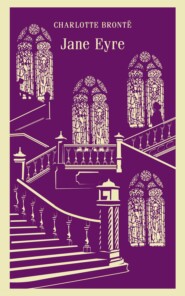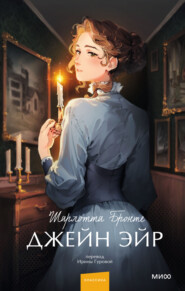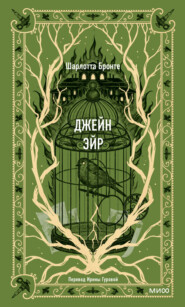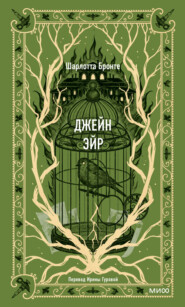По всем вопросам обращайтесь на: info@litportal.ru
(©) 2003-2024.
✖
Villette
Настройки чтения
Размер шрифта
Высота строк
Поля
Say what you will, reader – tell me I was nervous or mad; affirm that I was unsettled by the excitement of that letter; declare that I dreamed; this I vow – I saw there – in that room – on that night – an image like – a NUN.
I cried out; I sickened. Had the shape approached me I might have swooned. It receded: I made for the door. How I descended all the stairs I know not. By instinct I shunned the refectory, and shaped my course to Madame's sitting-room: I burst in. I said —
"There is something in the grenier; I have been there: I saw something.
Go and look at it, all of you!"
I said, "All of you;" for the room seemed to me full of people, though in truth there were but four present: Madame Beck; her mother, Madame Kint, who was out of health, and now staying with her on a visit; her brother, M. Victor Kint, and another gentleman, who, when I entered the room, was conversing with the old lady, and had his back towards the door.
My mortal fear and faintness must have made me deadly pale. I felt cold and shaking. They all rose in consternation; they surrounded me. I urged them to go to the grenier; the sight of the gentlemen did me good and gave me courage: it seemed as if there were some help and hope, with men at hand. I turned to the door, beckoning them to follow. They wanted to stop me, but I said they must come this way: they must see what I had seen – something strange, standing in the middle of the garret. And, now, I remembered my letter, left on the drawers with the light. This precious letter! Flesh or spirit must be defied for its sake. I flew up-stairs, hastening the faster as I knew I was followed: they were obliged to come.
Lo! when I reached the garret-door, all within was dark as a pit: the light was out. Happily some one – Madame, I think, with her usual calm sense – had brought a lamp from the room; speedily, therefore, as they came up, a ray pierced the opaque blackness. There stood the bougie quenched on the drawers; but where was the letter? And I looked for that now, and not for the nun.
"My letter! my letter!" I panted and plained, almost beside myself. I groped on the floor, wringing my hands wildly. Cruel, cruel doom! To have my bit of comfort preternaturally snatched from me, ere I had well tasted its virtue!
I don't know what the others were doing; I could not watch them: they asked me questions I did not answer; they ransacked all corners; they prattled about this and that disarrangement of cloaks, a breach or crack in the sky-light – I know not what. "Something or somebody has been here," was sagely averred.
"Oh! they have taken my letter!" cried the grovelling, groping, monomaniac.
"What letter, Lucy? My dear girl, what letter?" asked a known voice in my ear. Could I believe that ear? No: and I looked up. Could I trust my eyes? Had I recognised the tone? Did I now look on the face of the writer of that very letter? Was this gentleman near me in this dim garret, John Graham – Dr. Bretton himself?
Yes: it was. He had been called in that very evening to prescribe for some access of illness in old Madame Kint; he was the second gentleman present in the salle-à-manger when I entered.
"Was it my letter, Lucy?"
"Your own: yours – the letter you wrote to me. I had come here to read it quietly. I could not find another spot where it was possible to have it to myself. I had saved it all day – never opened it till this evening: it was scarcely glanced over: I cannot bear to lose it. Oh, my letter!"
"Hush! don't cry and distress yourself so cruelly. What is it worth? Hush! Come out of this cold room; they are going to send for the police now to examine further: we need not stay here – come, we will go down."
A warm hand, taking my cold fingers, led me down to a room where there was a fire. Dr. John and I sat before the stove. He talked to me and soothed me with unutterable goodness, promising me twenty letters for the one lost. If there are words and wrongs like knives, whose deep-inflicted lacerations never heal – cutting injuries and insults of serrated and poison-dripping edge – so, too, there are consolations of tone too fine for the ear not fondly and for ever to retain their echo: caressing kindnesses – loved, lingered over through a whole life, recalled with unfaded tenderness, and answering the call with undimmed shine, out of that raven cloud foreshadowing Death himself. I have been told since that Dr. Bretton was not nearly so perfect as I thought him: that his actual character lacked the depth, height, compass, and endurance it possessed in my creed. I don't know: he was as good to me as the well is to the parched wayfarer – as the sun to the shivering jailbird. I remember him heroic. Heroic at this moment will I hold him to be.
He asked me, smiling, why I cared for his letter so very much. I thought, but did not say, that I prized it like the blood in my veins. I only answered that I had so few letters to care for.
"I am sure you did not read it," said he; "or you would think nothing of it!"
"I read it, but only once. I want to read it again. I am sorry it is lost." And I could not help weeping afresh.
"Lucy, Lucy, my poor little god-sister (if there be such a relationship), here —here is your letter. Why is it not better worth such tears, and such tenderly exaggerating faith?"
Curious, characteristic manoeuvre! His quick eye had seen the letter on the floor where I sought it; his hand, as quick, had snatched it up. He had hidden it in his waistcoat pocket. If my trouble had wrought with a whit less stress and reality, I doubt whether he would ever have acknowledged or restored it. Tears of temperature one degree cooler than those I shed would only have amused Dr. John.
Pleasure at regaining made me forget merited reproach for the teasing torment; my joy was great; it could not be concealed: yet I think it broke out more in countenance than language. I said little.
"Are you satisfied now?" asked Dr. John.
I replied that I was – satisfied and happy.
"Well then," he proceeded, "how do you feel physically? Are you growing calmer? Not much: for you tremble like a leaf still."
It seemed to me, however, that I was sufficiently calm: at least I felt no longer terrified. I expressed myself composed.
"You are able, consequently, to tell me what you saw? Your account was quite vague, do you know? You looked white as the wall; but you only spoke of 'something,' not defining what. Was it a man? Was it an animal? What was it?"
"I never will tell exactly what I saw," said I, "unless some one else sees it too, and then I will give corroborative testimony; but otherwise, I shall be discredited and accused of dreaming."
"Tell me," said Dr. Bretton; "I will hear it in my professional character: I look on you now from a professional point of view, and I read, perhaps, all you would conceal – in your eye, which is curiously vivid and restless: in your cheek, which the blood has forsaken; in your hand, which you cannot steady. Come, Lucy, speak and tell me."
"You would laugh – ?"
"If you don't tell me you shall have no more letters."
"You are laughing now."
"I will again take away that single epistle: being mine, I think I have a right to reclaim it."
I felt raillery in his words: it made me grave and quiet; but I folded up the letter and covered it from sight.
"You may hide it, but I can possess it any moment I choose. You don't know my skill in sleight of hand; I might practise as a conjuror if I liked. Mamma says sometimes, too, that I have a harmonizing property of tongue and eye; but you never saw that in me – did you, Lucy?"
"Indeed – indeed – when you were a mere boy I used to see both: far more then than now – for now you are strong, and strength dispenses with subtlety. But still, – Dr. John, you have what they call in this country 'un air fin,' that nobody can, mistake. Madame Beck saw it, and – "
"And liked it," said he, laughing, "because she has it herself. But, Lucy, give me that letter – you don't really care for it."
To this provocative speech I made no answer. Graham in mirthful mood must not be humoured too far. Just now there was a new sort of smile playing about his lips – very sweet, but it grieved me somehow – a new sort of light sparkling in his eyes: not hostile, but not reassuring. I rose to go – I bid him good-night a little sadly.
His sensitiveness – that peculiar, apprehensive, detective faculty of his – felt in a moment the unspoken complaint – the scarce-thought reproach. He asked quietly if I was offended. I shook my head as implying a negative.
"Permit me, then, to speak a little seriously to you before you go. You are in a highly nervous state. I feel sure from what is apparent in your look and manner, however well controlled, that whilst alone this evening in that dismal, perishing sepulchral garret – that dungeon under the leads, smelling of damp and mould, rank with phthisis and catarrh: a place you never ought to enter – that you saw, or thought you saw, some appearance peculiarly calculated to impress the imagination. I know that you are not, nor ever were, subject to material terrors, fears of robbers, &c. – I am not so sure that a visitation, bearing a spectral character, would not shake your very mind. Be calm now. This is all a matter of the nerves, I see: but just specify the vision."
"You will tell nobody?"
"Nobody – most certainly. You may trust me as implicitly as you did Père Silas. Indeed, the doctor is perhaps the safer confessor of the two, though he has not grey hair."
"You will not laugh?"
"Perhaps I may, to do you good: but not in scorn. Lucy, I feel as a friend towards you, though your timid nature is slow to trust."
He now looked like a friend: that indescribable smile and sparkle were gone; those formidable arched curves of lip, nostril, eyebrow, were depressed; repose marked his attitude – attention sobered his aspect. Won to confidence, I told him exactly what I had seen: ere now I had narrated to him the legend of the house – whiling away with that narrative an hour of a certain mild October afternoon, when he and I rode through Bois l'Etang.
He sat and thought, and while he thought, we heard them all coming down-stairs.
"Are they going to interrupt?" said he, glancing at the door with an annoyed expression.
"They will not come here," I answered; for we were in the little salon where Madame never sat in the evening, and where it was by mere chance that heat was still lingering in the stove. They passed the door and went on to the salle-à-manger.
"Now," he pursued, "they will talk about thieves, burglars, and so on: let them do so – mind you say nothing, and keep your resolution of describing your nun to nobody. She may appear to you again: don't start."
"You think then," I said, with secret horror, "she came out of my brain, and is now gone in there, and may glide out again at an hour and a day when I look not for her?"

















